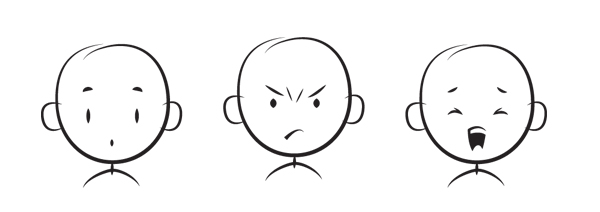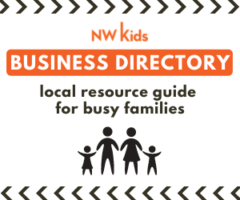Kids & Anxiety: How to spot it and how you can help


Kids worry. Some worry more than others, but little ones of all ages experience anxiety. As parents, we may have learned how to regulate our own anxious emotions or we may struggle with anxiety on a day-to-day basis – which, as we also know, can be really tough at times!
So imagine what it’s like for a child to be experiencing anxiety, but not knowing what it is and how to work through it. Being able to recognize signs of anxiety in kids is the first step in helping them manage and work through the unknown and scary emotions they may be feeling.
Some common fears based on age of child:
- Babies and toddlers: loud noises, heights, strangers and separation from caregivers.
- Preschoolers: the dark or being alone.
- School-age children: social situations, failure, tests, going to the doctor or dentist, physical harm, relationships with friends or criticism. They may also seek approval and reassurance from others and strive for perfection.
- Worries become more common in children over eight years of age. They are able to imagine the future and the bad things that could happen to them, others or in general.
Signs of anxiety in kids:
- Excessive worry most days of the week
- Fear and/or avoidance of certain things and situations
- Trouble sleeping at night and/or being sleepy during the day
- Restlessness
- Trouble concentrating
- Irritability
- Lashing out
- Frequent tantrums
- Stomachaches or headaches
- Changes in appetite
- Not wanting to go to school
- Constant need for reassurance
- Wanting things to be perfect
How to empathize with your kids and help them work through it
The best way to help your child is to listen, be supportive and acknowledge their anxiety in a nonjudgmental way. It’s common for kids to avoid talking about how they feel. They may worry about what others, especially their parents, will think or that they won’t be understood. Talk openly to your child about what they are experiencing and really try to understand how it is affecting their everyday life. If what they are saying upsets you, try not to get upset with them. If they feel you’re mad at them or not taking what they’re saying seriously, it may close the door for future conversations that they need to have with you down the road.
Another support system is finding a counselor who specializes in working with children. Child counselors help children find the coping skills that work best for them and are specific to the difficulties they may be experiencing. If they do begin seeing a counselor, stay positive and be supportive as they learn and use their new coping skills and the strengths within them to help them get through life’s struggles.
One of the most helpful things you can do as a parent is to acknowledge your own anxieties, worries and fears. Let your child know that you, too, have worries and share with them ways you have overcome them. Recognizing and addressing your own anxiety as a parent is a very powerful way to help your child. Kids can feel our emotions, even if we try and hide them. They sense when we are happy, sad, angry or scared. So imagine what they experience when we’re feeling anxious and not in control of our own emotions! It can be scary and trigger anxiety in them as well. If you see or have seen a counselor yourself, let your child know how it has helped you. When a child realizes they are not alone, it’s a sense of relief and they are typically more willing to talk about their anxiety with others. It then becomes an open door of communication and, to them, can feel like a lifeline.


